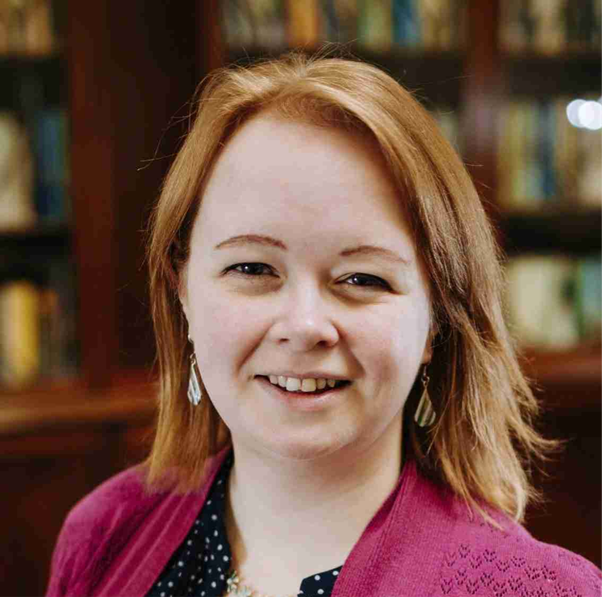13 November 2024
Facilitating Constructive Conversations about Inclusion: The value of an Inclusive Higher Education Framework

Authors
Katharine Hubbard
University of Hull Teaching Excellence Academy
k.hubbard@hull.ac.uk @KEHplantsci
Paula Gawthorpe
University of Hull Teaching Excellence Academy
Most higher education (HE) institutions are making claims to be inclusive. However, inclusion is not a straightforward concept. There are multiple competing views of inclusion within HE in both literature and in practice. For example, some interpret the term ‘meeting legal obligations’ as providing reasonable adjustments for students with disabilities, while others see inclusion much more holistically as good educational practice that ensures all can reach their full potential.
There is considerable conceptual and real-world tension between interpretations of inclusive education. Some see inclusion as a set of values and beliefs, whereas others focus more on practical strategies that can be implemented. Staff ‘on the ground’ are often frustrated by tokenistic institutional approaches to inclusion, seeing actions as performative tick-box exercises rather than creating meaningful change. Observation of exclusionary practice can even result in interpersonal tension or conflict between colleagues that undermines attempts to create an inclusive culture.
Frameworks can be a powerful tool to facilitate meaningful conversations about difficult topics. They provide a structure for discussion, while remaining flexible and adaptable to local needs. Our Inclusive Higher Education Framework is designed as a tool to create a shared understanding of the breadth and depth of inclusive education. It highlights five key areas of inclusive practice: (i) structures and processes, (ii) curriculum design and delivery (iii) assessment and feedback (iv) community and belonging and (v) pathways to success. These are underpinned by a set of core principles and values, including leadership, accountability, empathy, partnership working, evaluation and reflection. Launched in May 2023, it was developed in collaboration between seven institutions in our QAA funded Collaborative Enhancement Project, and is accompanied by an online resource bank of case studies, checklists and a self-paced online course.
We have found the framework a powerful tool in exploring what inclusive practice really means, as well as identifying practical actions that individuals, programme teams and senior leaders can take to improve inclusion. We have used the framework in dozens of workshops, including with those who are uncomfortable or even hostile to what they see as an inclusion ‘agenda’. In our experience, exploring the framework helps move colleagues away from a narrow reasonable adjustment focussed view of inclusion to a more holistic understanding. It also allows colleagues to identify where their practice is already more inclusive than they imagined, and that inclusion does not mean abandoning disciplinary norms or academic standards.
Our framework is accompanied by a series of checklists, written for individuals, programme teams and those in leadership roles. There is a 10-question checklist for each area of the framework, which can be used in isolation or combined to enable a more comprehensive audit of inclusive practice. These are a valuable tool to stimulate discussion and identify areas of strengths and weakness. Our workshops helped programme teams identify actions including creating awarding gap champions, reviewing marking criteria, and inviting recent programme graduates from diverse backgrounds to act as role models or mentors for current students.
Our approach to inclusion at University of Hull was a central part of our TEF Gold Award. Our institutional narrative made a strong case that excellent education had to be an inclusive education, with the framework presented as evidence of our institution level approach. This was highlighted as a sector leading approach in recent reports by both the QAA and AdvanceHE. We are still embedding the framework internally at Hull; for example the nursing programmes have been redesigned through the lens of the framework. The framework is being used in multiple institutions and has been adopted as a core resource for programme teams by the Institute of Biomedical Science. We have presented the framework at national conferences and are invited to share the framework and facilitate workshops at institutions across the sector. We also have a manuscript in review exploring the development of the framework and what it tells us about conceptualisations of inclusion.
Programme teams tell us that the framework is an accessible resource which has helped to address inequality in student outcomes and in designing programmes that align with the increased emphasis on equality, diversity and inclusion (EDI) in the most recent QAA Subject Benchmark Statements.
Being genuinely inclusive at scale requires a consistent and systematic approach, which relies on a common understanding of what inclusion really is. Our framework can help create a shared vision of inclusive practice appropriate for local contexts, empowering individuals and teams to create genuinely inclusive education for all students.

